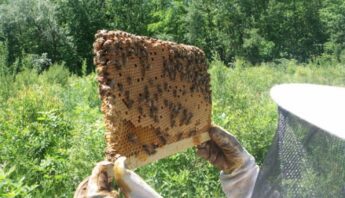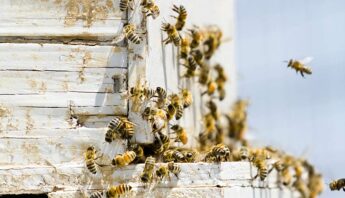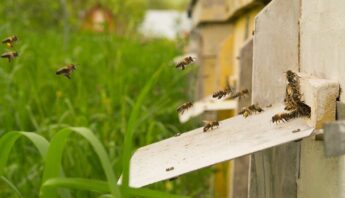Yesterday, the Minnesota Department of Agriculture (MDA) released a report outlining their plans to respond to declining bee populations. The report, commissioned by the Minnesota Legislature, addresses the feasibility of creating a pollinator bank; state agencies’ efforts to increase pollinator habitat; development of Best Management Practices for pollinator habitat; and the Department’s plans for a review of neonicotinoid pesticides.
MDA previously announced their review of neonicotinoids at a legislative hearing in early December, just a week after the European Union suspended the use of this class of pesticides in order to protect Europe’s pollinator populations. As outlined in the report, MDA’s review will include an assessment of risks and benefits associated with neonicotinoid use, and may lead to clarification of label provisions, education on application and enforcement, and additional steps to minimize the impacts of neonicotinoids on the human and environmental health.
Pesticide Action Network’s organizer in the Midwest, Lex Horan, released the following statement in response to the yesterday’s report:
“Yesterday’s report is an encouraging indicator that decision-makers in Minnesota are serious about addressing alarming declines in bee populations. In particular, the current review of neonicotinoids is an exciting opportunity for our state to step up to protect bees. The science is clear: neonicotinoids are the catalyst driving bee declines. Minnesota beekeepers and scientists have been tirelessly telling the public that pesticides are a critical part of the problem, and it’s encouraging to see that decision-makers are listening.
While EPA plans to wait until 2018 to review neonicotinoids, Minnesota has a chance to limit their use much sooner. Yesterday’s report indicates that the Minnesota Department of Agriculture intends to closely follow EPA’s lead in its review of neonicotinoids. Unfortunately, EPA has been slow to take the necessary action, failing to restrict the use of neonicotinoids in spite of overwhelming scientific evidence that they’re harmful to bees. It’s promising to see the Department of Agriculture and the legislature dedicating much-needed resources to this problem. Let’s put these resources to good use by restricting neonicotinoids, instead of continuing to give them an administrative green light.”
Steve Ellis, a commercial beekeeper from Barrett, Minnesota, commented:
“We already have 150 scientific papers that implicate neonicotinoids in bee declines. It’s time we took action in the United States, and I would hope that the Minnesota Department of Agriculture would step up to the plate and be proactive.
Increasing habitat is critical, but without restricting neonicotinoids, in my opinion it’s window dressing. It’s doing nothing to improve the health of bees that are being poisoned at an unacceptable rate. Minnesota has the authority to set standards that are more protective of bees than EPA regulations. Our state should recognize this and become a leader rather than a follower.”
Contact: Lex Horan, lex@panna.org







